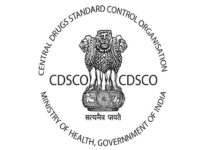The Indian Council of Medical Research, the country’s apex agency for biomedical research, has issued guidelines for the use of drones in health.
WHAT IS IT USED FOR?
The 28-page guide provides step-by-step instructions for gaining regulatory licences for deploying various types of drones and using airspace for medical supply delivery. It also examines how to choose appropriate drones for medical supplies, as well as criteria for selecting drone take-off and landing places. The document also specifies the kinds of medical goods which can be transported by drone, and the preparation of carrier packages and the procedure of loading and unloading products from drones, as well as quality assurance considerations.
It also emphasises the necessity for and training of healthcare staff for drone-based delivery.
Vaccines and temperature-sensitive medical supplies with protection needs of 2-8 degrees Celsius, non-temperature-sensitive supplies like tablets, syrups, and surgicals, blood bags, as well as diagnostic biological samples such as body tissue, urine, blood, pus, sputum, saliva, or frozen specimens are among the medical items approved for drone deliveries, according to the document.
WHY DOES THIS MATTER?
Drone technology has “immense potential” in healthcare, according to the ICMR, since it may be used as a last-mile logistics option to carry medical supplies to hard-to-reach places. While there is increased interest, there is a lack of information on how to execute delivery drones, and this is where the company’s latest guidance can help cover the knowledge gap about employing drones in healthcare transportation.
THE BROADER PATTERN
In October of last year, the ICMR conducted a pilot study in the north-eastern states of Manipur and Nagaland to investigate the viability of deploying drones to distribute COVID-19 vaccinations and medical supplies. The country’s COVID-19 vaccination programme gained “renewed vigour” as a result of the research, as per head of Epidemiology and Communicable Diseases at ICMR, Samiran Panda. Drones are projected to play a larger role in the future, he said, by providing a time-efficient way of delivering lifesaving pharmaceuticals to far-flung and isolated regions in India. In September 2021, India’s first medical drone delivery took place after the government liberalised its drone policies that year. The World Economic Forum, Apollo Hospital’s HealthNet Global, and the government think tank NITI Aayog partnered on the Medicine from the Sky project in the southern state of Telangana.
Retailio, a local internet pharmaceutical marketplace, experimented with drone drug delivery earlier this year in collaboration with drone logistics business Redwing Labs. The event took place in the Chickaballapur region of Karnataka’s southern state.
IN THE BOOKS
Because the use of drones in healthcare is such a new business in the country, there is a risk of misunderstanding and vagueness in standard operating procedures. In accordance with the New Drone Rules-2021, this guidance document lays out specific requirements for drone operators, including obtaining regulatory approvals, choosing suitable drone specs and accessories for conducting specialised delivery operations, identifying and training human resources for efficient on-ground deployment, and dealing with unexpected events during field operations, ICMR’s director-general, Dr. Balram Bhargava, made a statement.


















